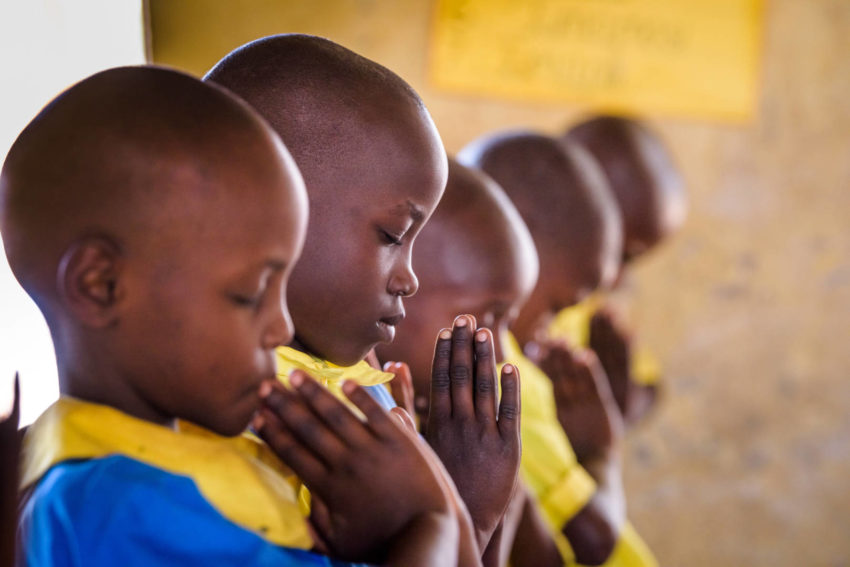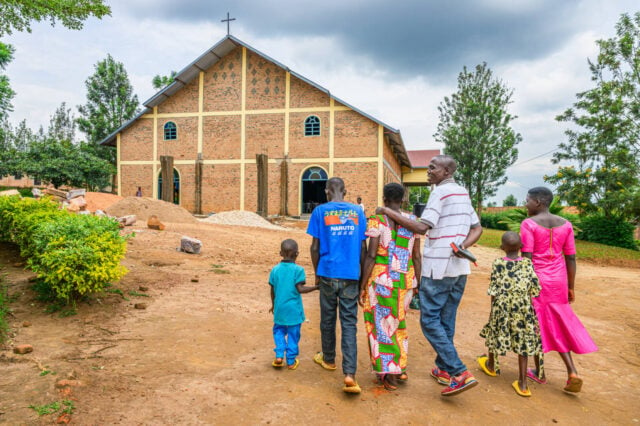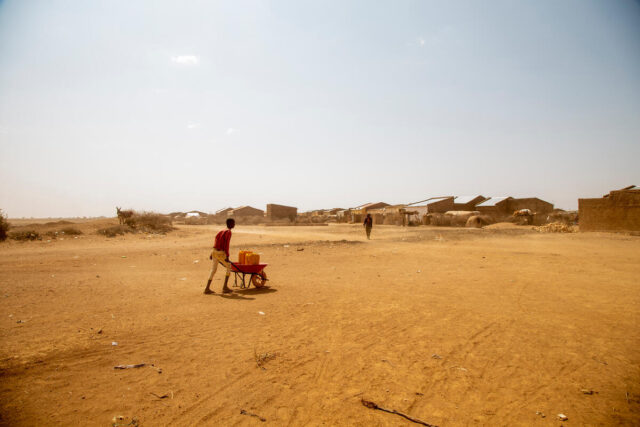Jesus calls his followers to become like children to enter the kingdom of heaven. But what does it look like to welcome children as Jesus commanded? How do we support children’s faith and not become stumbling blocks in our homes, churches, communities, and around the world?
… ‘Truly I tell you, unless you change and become like little children, you will never enter the kingdom of heaven. Therefore, whoever takes the lowly position of this child is the greatest in the kingdom of heaven. And whoever welcomes one such child in my name welcomes me.’—Matthew 18:3-5 (NIV)
World Vision’s nearly 70 years of experience working to reduce material poverty goes hand in hand with our work to overcome spiritual poverty. Children cannot truly experience fullness of life unless they have the opportunity to deepen their understanding of God’s love. But we also cannot expect children to experience God’s love if they are hungry, sick, or exploited.
World Vision’s Christian faith is woven into the fabric of all of our work. Through all we do — drilling wells, offering innovative agricultural training, providing microloans, preventing child labor, responding to disasters — we are following Jesus in showing unconditional love to the poor and oppressed. We serve every child we can, regardless of their faith, and are sensitive to the diverse contexts in which we work.
World Vision supports children’s faith and helps them experience the love of God through five main areas.
1. At home and school — We equip parents and caregivers to provide a safe and caring environment.
A family home should be a nurturing place, but typically it is where a child is first exposed to violence. At least 1.7 billion of the 2.2 billion children in the world experience violence every year in their homes, schools, or communities. It is hard to experience God’s love if the primary caregivers in your life do not show you love.
That’s why we equip parents, caregivers, and teachers to provide a safe and caring environment for children’s spiritual growth that reflects Christian values.
From 2016 to 2017, World Vision trained 134,387* parents in positive discipline and also engaged 263,379 community members in attitude change sessions to help transform cultural norms of violence against children. In addition, 212,205 children and youth participated in World Vision programs to end violence against children.
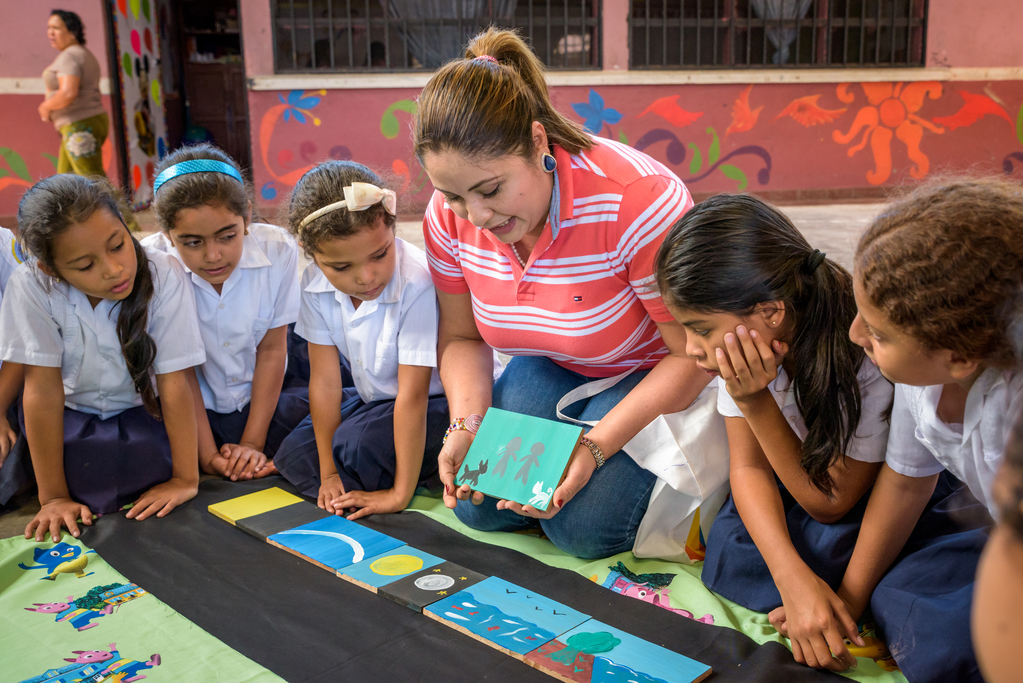
2. At church — We empower and mobilize churches to help children grow in their faith.
We desire that every church in our project areas sees World Vision as an indispensable partner in fulfilling God’s purposes in their communities. World Vision has developed a global network of partnerships with more than 14,000 local churches, enabling us to reach deeply into communities and nurture children’s faith in Christ.
However, in the impoverished communities where World Vision works, most churches lack the knowledge or training to create ministry programs that engage children’s curiosity and interest with age-appropriate communications.
World Vision trains tens of thousands of faith leaders every year to equip them to minister to the spiritual and physical needs of children and their communities. We help to strengthen local leadership and equip them with practical programs and tools for ministry, including children’s ministry.
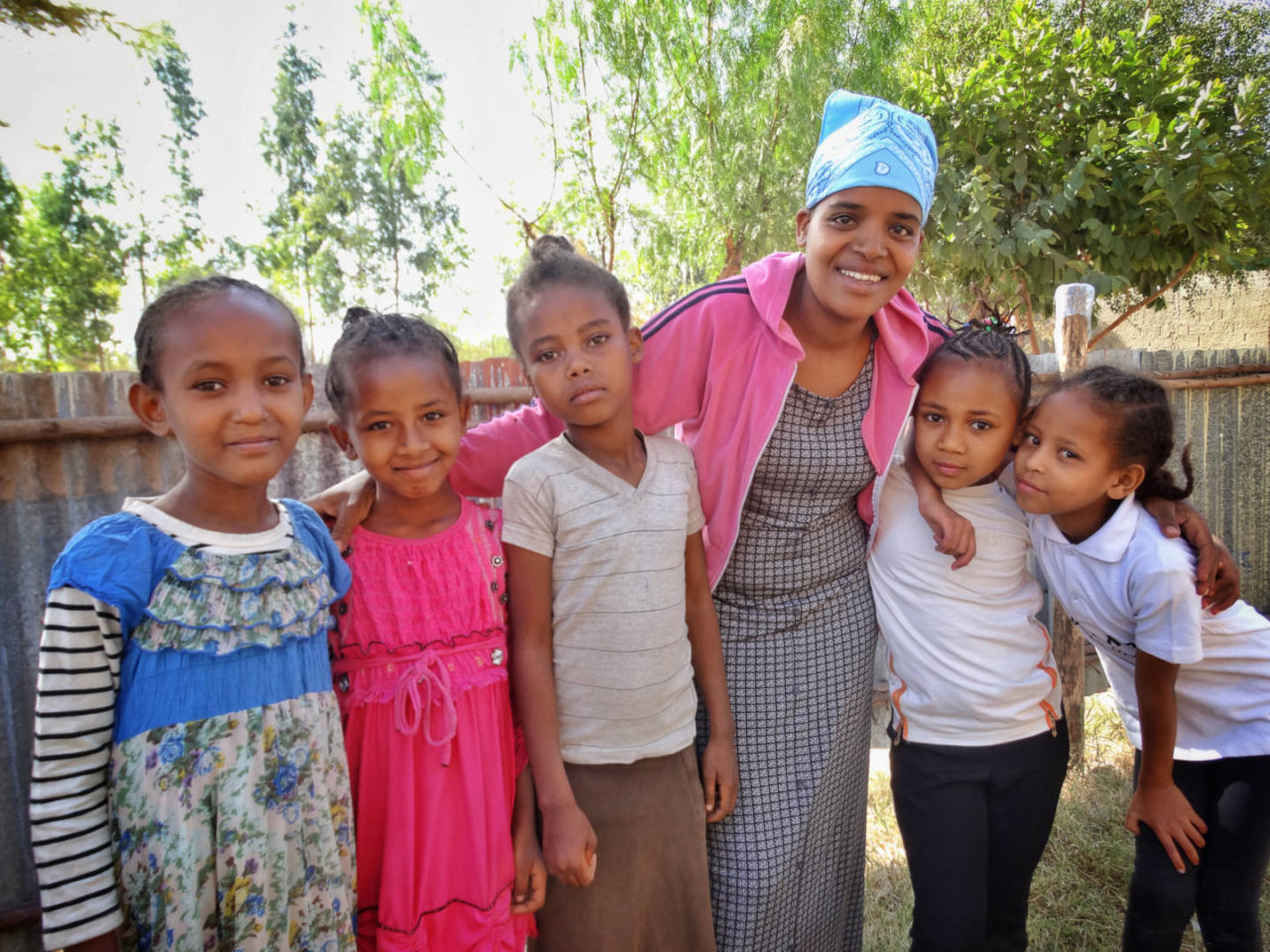
3. In after-school programs — We enable children to grow in their awareness, knowledge, and experience of Jesus.
Nearly 3.5 million children and youth participate in World Vision discipleship and values education. After-school programs include vacation Bible schools, Bible clubs, church-based camps, and school-based biblical values formation. These programs keep children engaged in positive activities, equip them to make healthy choices, help improve their relationships, and nurture their faith in God.
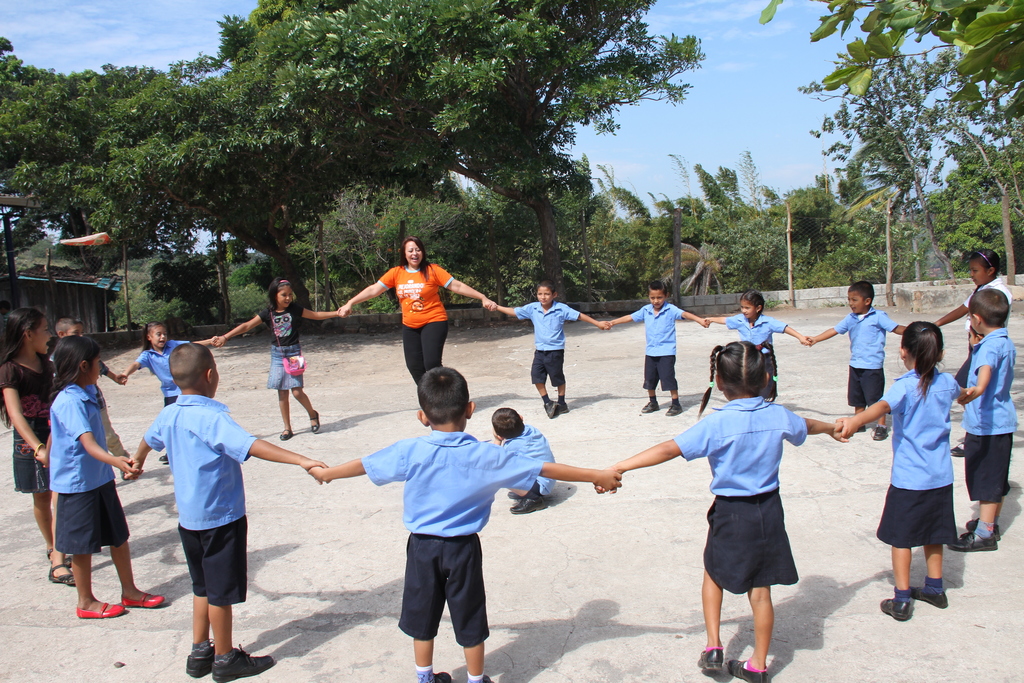
4. In ministry — We equip youth to explore God’s purpose for their lives and live out their faith by mentoring children and peers.
World Vision provides leadership training for youth to learn and give back to their community and to other children. Globally, 304,471 adolescents attend regular groups for support and training. As children and youth grow in their faith convictions, they become ambassadors for Christ in their communities.
This training equips adolescents to help lead after-school activities including Bible clubs. Younger children benefit from the positive role models of older children, and older children grow in their confidence and their faith.
These youth develop important life skills that shape their decisions as they become adults. In places like Central America, training helps youth find their identity in Christ, rather than in gangs. And, as they teach others, they reinforce the firm foundation they’ve built in Christ.
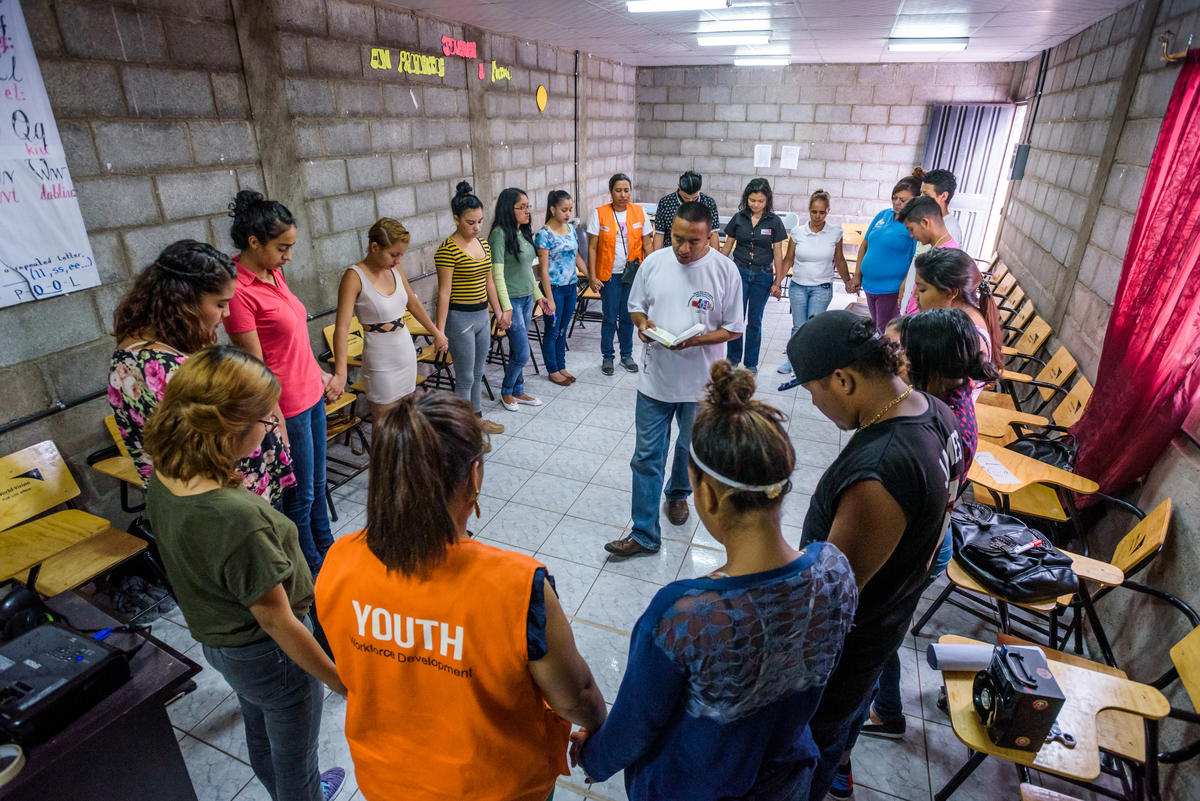
5. In God’s Word — We make Bibles available to churches and families.
When struggling to make ends meet, buying a Bible is out of the question, so children and adults rely on teachings from local church leaders to guide their faith. They don’t have an opportunity to study God’s Word for themselves or deepen their understanding of how to live Christ-like lives. Many ministry leaders don’t even have their own Bible to use for study or preaching.
World Vision offices in 25 countries have requested more than 2 million Bibles to strengthen the faith of children and families. We have recently distributed more than 94,000 Bibles in nine countries that are being used in Sunday school classes, after-school Bible clubs, and personal devotion as well as to help improve children’s reading skills. But we need your help.
Help grow children’s faith and empower the local church.
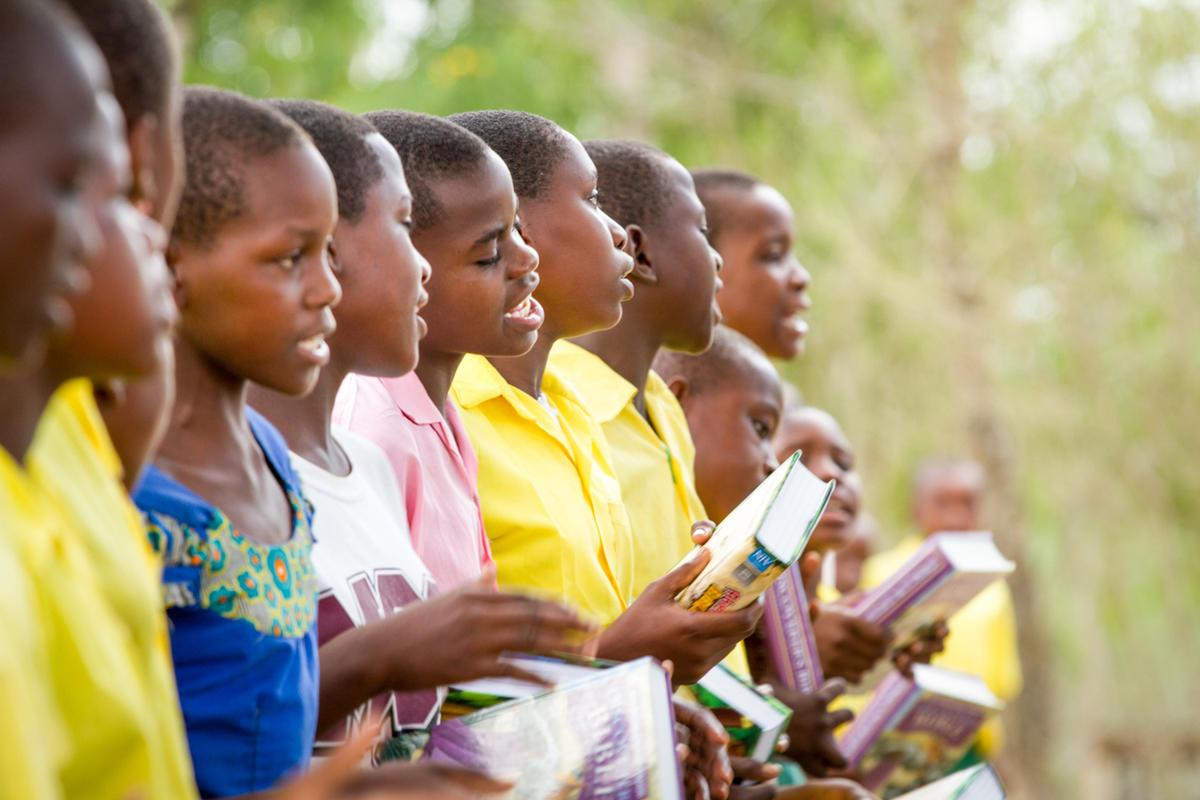
Mesrach Ayele, Kari Costanza, Chris Huber, and Katia Maldonado contributed to this story.
*Data gathered from World Vision’s Evidence & Learning team.
